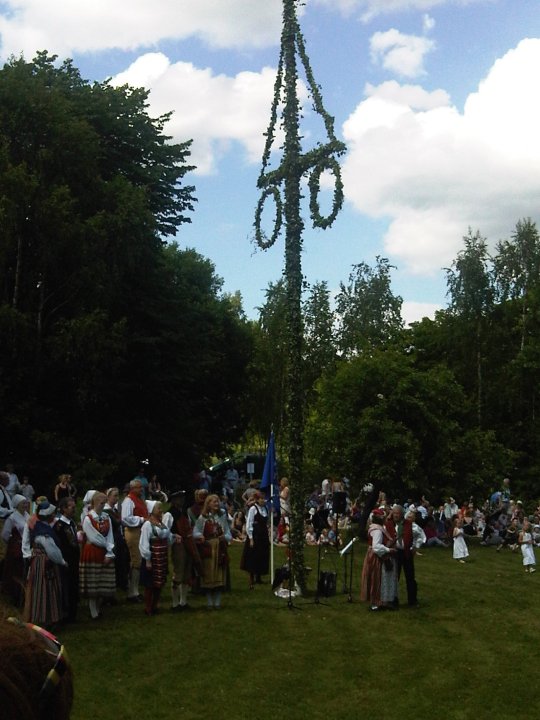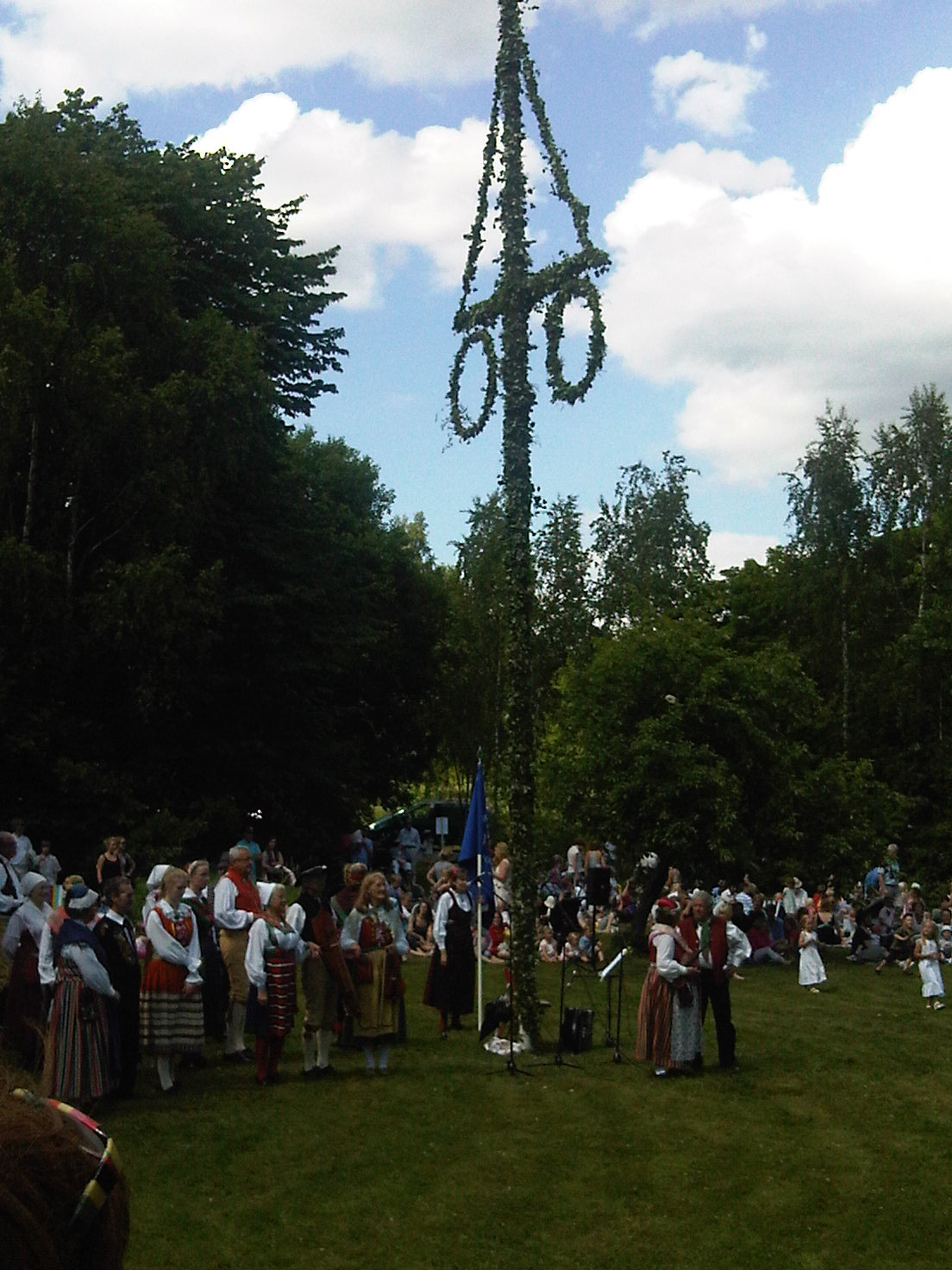 I’m in Stockholm today to celebrate the summer solstice. It’s a magical part of the year, best illustrated by the newspaper column (below) giving times for sunrise and sunset in various parts of Sweden. In Kiruna there’s just a dash – the sun doesn’t rise or set in this part of the year. (The same is true in winter, the poor things).
I’m in Stockholm today to celebrate the summer solstice. It’s a magical part of the year, best illustrated by the newspaper column (below) giving times for sunrise and sunset in various parts of Sweden. In Kiruna there’s just a dash – the sun doesn’t rise or set in this part of the year. (The same is true in winter, the poor things).
Normally, the Swedes disguise their pagan festivals with a Christian veneer (like Santa Lucia) but today’s all-out dance-round-the-fertility-pole without apology. It’s like a cross between the Waltons, Woodstock and the Wicker Man. Events like these drive home the limitations of taxing alcohol: it’s far from unusual, in the evening, to find a bottle of pure bootleg alcohol on the table for revellers to mix with coke as if it were vodka. A rare example, in Sweden, of what not to follow. The country has become a peculiar lodestar for both left and right in Britain, it’s high taxing pleasing the left and its market-driven approach to public services fascinating the right. And it does combine both. I was speaking at an event organised by Timbro on Wednesday, and found out that their traffic of visiting Brits – politicians and journalists – has vastly increased recently. The tax rate is high, but since 1982 it has steadily been what the economist Andreas Bergh has described as the “capitalist welfare state” (he discusses it here).
As CoffeeHousers know, I fell in love with Sweden (and with one of its daughters) many years ago so I’m delighted at its increasing influence. I just hope that we learn the good lessons (market-orientated provision of public services) and not the bad ones (punative levels of tax which inspire people to exile or just to make bootleg vodka).









Comments